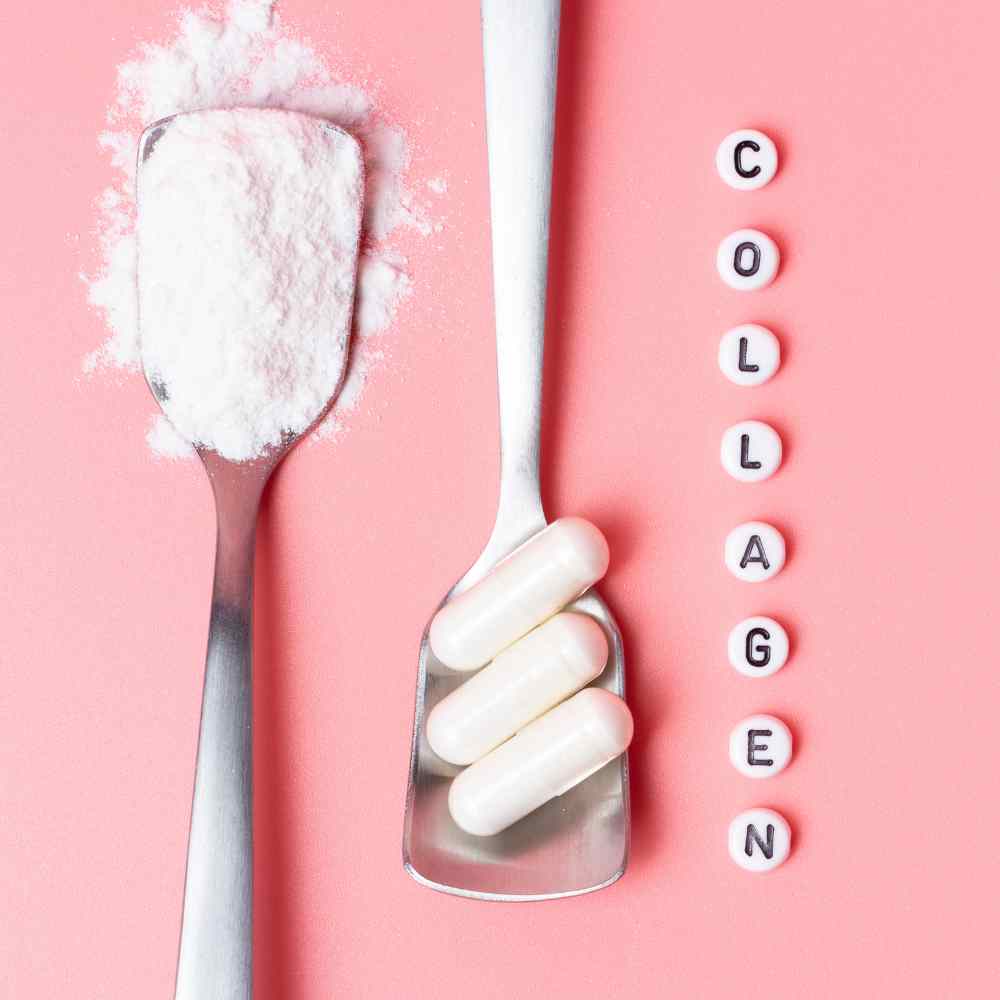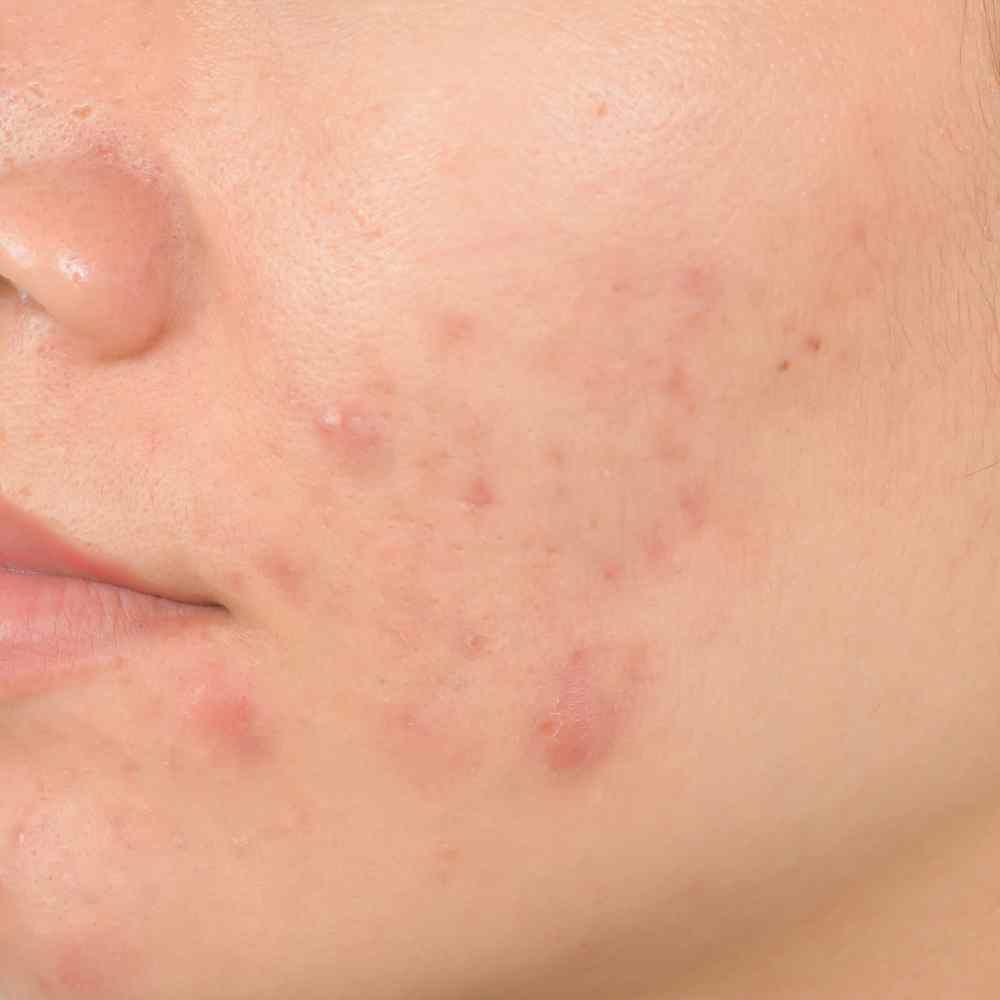
Can Collagen Cause Acne? What the Science Says!
Are you ever scrolling through skin care articles and products, wondering if any of them can actually improve your skin or if they’re all snake oil? If so, we feel ya!
One product that has recently become extremely popular is collagen – but could it be causing more harm than good?
We know how tricky the world of skincare can be (especially when it comes to acne). So today we’ll dive into the science behind collagen and break down what experts are saying so you can make an informed decision about whether or not you should give this trendy supplement a go. Let's get started!
What Triggers Acne Breakouts?
Before we dive into the effects of collagen on acne, let's briefly understand acne prone skin and the underlying causes.
There’s not just one single thing that triggers acne. It’s usually a combination of several factors.
First things first: your hormones play a huge role in determining how much oil your skin produces. When testosterone and other hormones fluctuate, it can cause an increase in sebum secretion—basically, more oil on your skin which can combine with dead skin cells and bacteria leading to clogged pores and eventually breakouts.
Age also plays a part here - as we get older our hormonal levels start changing which might contribute to adult acne issues as well.
Another potential culprit is obviously diet! Foods high in sugar (like doughnuts and other sugary treats) as well as dairy products like cheese or yogurt are often associated with increased breakouts since they all contain natural oils that can contribute to blocked pores.
But again this isn’t always the case so try tracking your food intake for a few weeks and see if you notice any trends when it comes to where you tend to breakout most often after eating certain meals or snacks!
Lastly, let's talk about stress, which sadly affects almost everyone at some point throughout their life!
Stressful situations such as exams or big work deadlines are known contributors towards breakout flare ups due to how cortisol (a hormone released during times of stress) interacts with the body, so make sure you take some time out for yourself whenever needed (we all deserve it).
Hormonal acne breakouts are caused by multiple things happening at once including fluctuations in hormones, poor dietary choices, and increased stress levels––all three of which need looking into if you want clear skin again soon. Now let's talk about collagen!

Why Take a Collagen Supplement?
Collagen peptides have become one of the hottest health trend ingredients in recent years, and for good reason! Collagen is a protein found naturally in the body that helps keep our skin looking healthy and youthful.
As we age, our bodies slow natural collagen production which can lead to wrinkles and other signs of aging. By supplementing with collagen, people are able to replace depleted supplies and take advantage of its many benefits.
Here are some of the amazing benefits that taking collagen can offer:
Improved Skin Health
Collagen helps increase moisture levels and skin elasticity, leading to a plumper, smoother skin texture with fewer wrinkles. It also provides support for connective tissues like cartilage which keeps joints flexible and reduces pain associated with osteoarthritis-related joint degeneration.
Stronger Hair & Nails
Taking collagen will help give you thicker hair thanks to improved keratin production as well as stronger nails due to increased hydroxyproline levels which stimulates cell growth around nail beds for better protection against breakage.
Improved Metabolism
The amino acids found in collagen can help you reduce inflammation associated with metabolic issues such as diabetes or obesity by aiding sugar metabolism regulation or improving insulin sensitivity.
There’s also evidence that suggests regular intake may help improve muscle strength while increasing lean body mass through enhanced protein synthesis resulting from strengthened tendon connections between muscle fibers!

Does Collagen Cause Acne?
Collagen has become such a popular supplement with both men and women. But, does it trigger an acne breakout or is it just a rumor? Here are the claims we found online that it could cause acne.
Increased Sebum Production
One theory suggests that collagen supplementation may increase sebum production, leading to clogged pores and acne breakouts. However, there is limited scientific evidence to support this claim.
While collagen is a protein found in the skin and plays a role in its structure and elasticity, it does not directly influence sebum production.
Hormonal factors and genetic predispositions are more significant contributors to sebum production and acne development.
Quality of Collagen Supplements
Another consideration is the quality and sourcing of collagen products.
Some collagen supplements on the market may contain additives, fillers, or impurities that could potentially trigger acne breakouts or skin irritations.
To minimize the risk, it is crucial to choose reputable brands that prioritize high-quality sourcing and manufacturing practices.
Look for collagen products that are tested, certified, and free from unnecessary additives.
Individual Sensitivities & Allergies
Each individual's skin is unique, and what works well for one person may not suit another.
Some individuals may be more prone to developing acne breakouts or skin irritations due to individual sensitivities or allergies.
If you have a known sensitivity to collagen or any other ingredient, it is best to consult with a healthcare professional or dermatologist before incorporating collagen into your skincare routine.
Also, there are different forms of collagen supplements. Some of them are from animal products such as cattle. There are also marine supplements that come from different sources, such as the scales of fish. Some formulations may work better for certain individuals.
Ashley Carlson, a hormone health coach, describes another reason collagen could trigger a breakout in this video.
@ashleycarlson.co The connection between collagen supplements and acne #collagen #acne #acnebreakouts #collagensupplements
♬ original sound - Ashley Carlson Co.
Incorporating Collagen into Your Skincare Routine:
If you decide to incorporate collagen into your skincare routine, here are some tips to do so effectively.
Choose High-Quality Collagen Products
Opt for collagen supplements or skincare products from reputable brands that prioritize quality sourcing and manufacturing practices. Look for products that are certified, tested, and free from unnecessary additives.
Follow Proper Dosage & Usage Instructions
Adhere to the recommended dosage and usage instructions provided by the product manufacturer. Overusing collagen supplements or applying excessive amounts of collagen-based skincare products will not yield faster or better results. Consistency and moderation are key.
Pair Collagen with a Comprehensive Skincare Routine
Collagen is not a magic solution for all skincare concerns, including acne. It is essential to maintain a comprehensive skincare routine that includes cleansing, exfoliating, moisturizing, and using targeted acne-fighting ingredients such as salicylic acid, benzoyl peroxide, or retinoids like tretinoin.
If these products become drying, you can add serums such as hyaluronic acid serum for skin hydration, niacinamide, or moisturizing face masks to balance your skin barrier.
Collagen can be a valuable addition to your routine, supporting overall skin health and potentially improving the appearance of acne scars.
The Truth About Collagen & Acne
When it comes to improving the health of your skin, collagen should not be dismissed as a perpetrator, but rather embraced as an ally.
Give this fascinating protein a fair chance by selecting quality products with thoughtful dosages and usage instructions.
If you find that collagen works well for your skin, then celebrate! Skincare is truly a journey with no definitive endpoint but instead a lifetime of learning more about what works best for us individually.
The good news is that someone out there (like us!) is rooting for your success. So please don’t hesitate to share any tips or tricks you find for optimal glowing skin—we’re always hungry for more knowledge!

















